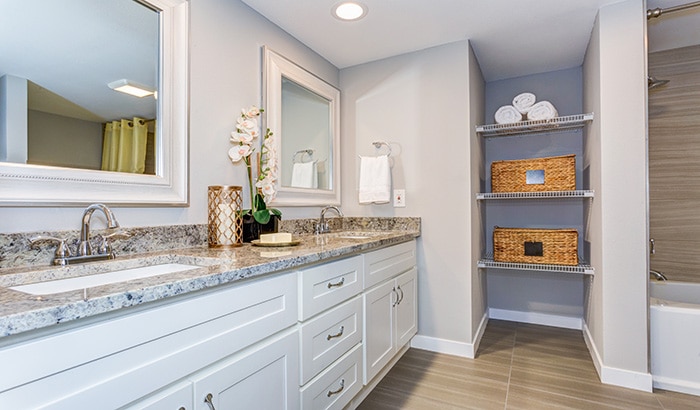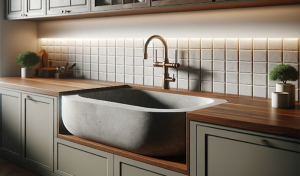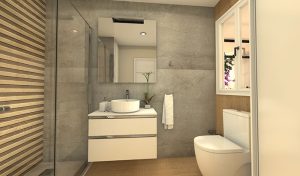If you’re thinking about remodeling your bathroom, you might be having a tough time choosing between granite or quartz countertops.
If you’ve been on the fence, or you aren’t sure about the pros and cons between the two, look no further! We’ve created a comprehensive guide on granite vs. quartz so you can make a perfectly educated decision on your new bathroom countertops.
What’s The Difference?
Granite is a natural stone made from the cooling and solidifying of molten materials then mined from quarries around the world. Once mined, it is cut into a usable slab for countertops, then polished until it shines. Quartz, however, is only 95% natural and otherwise filled with polymer resins. Both options are popular countertops in kitchens and bathrooms alike. But which one is better for your bathroom situation? Let’s break it down.
Price
While the amount of granite or quartz you need is a significant factor in price, granite countertops can run between $75-$175 per square foot, according to The Spruce. Depending on the type of granite and how rare its appearance is, the higher the price will be. Whereas quartz countertops can range in price at an average between $115 to $200 per square foot, costing more depending on how high the quality is.
Maintenance
A factor you should be keeping in mind when it comes to countertops in the bathroom is how easy the materials are to keep clean and looking new. Granite is extremely porous and can often look and feel dirty if it is not appropriately maintained. Countertops made with granite should be cleaned daily with a mild household cleaner made for natural stone. Additionally, sources like HGTV recommend that granite countertops should be resealed each year to ensure longevity.
Quartz countertops are a much more solid surface than granite. Because there are no pores on the surface, cleaning is much easier, and there is no need for resealing. Quartz surfaces should be cleaned of any spills and wiped down with a household cleaner for sanitizing purposes. Other than routine cleaning, there is no additional maintenance that needs to be done with quartz countertops.
Durability
While both materials are known to be extremely durable, they are durable in different ways. Granite is heat-resistant and many elements. However, due to the pores in the granite, staining can occur from liquids that settle. Also, granite does have more potential to crack if it sustains a high impact blow.
On the other hand, quartz is much harder than granite and is virtually indestructible in the breaking and cracking department. However, quartz is not heat resistant, and extreme heat could result in surface damage. For a bathroom countertop, this should not be a problem; however, it’s always good to keep in mind what materials can handle certain temperatures.
Appearance
When you’re choosing between granite or quartz, you want what will look best in your home. Since granite is made naturally, it comes in many different colors and designs, which means no two countertops look the same. Granite is a popular option because of its uniqueness and how it can create a standout contrast in a room.
The main reason quartz is so popular is that it is so much easier to find a quartz piece that perfectly matches your decor and style. Due to the engineering process that is used to make quartz countertops, you’re able to customize your design to make it suitable for your space.
A Pros and Cons Recap
Pros for granite countertops:
- Luxurious yet often more affordable than quartz countertops
- Extremely unique with no two slabs that look the same
Cons for granite countertops:
- Requires more maintenance than quartz countertops and a yearly resealing
- Less durable than quartz
- It may take more time to find something that perfectly matches your decor
Pros for Quartz countertops:
- Easy to clean and maintain
- Highly customizable
- Coloring is more uniform
- Extremely durable and stain resistant
Cons for Quartz countertops:
- Not as heat resistant
- One of the most expensive options for countertops
Remodel Your Bathroom with Mountain States Kitchen and Bath
Whether you decide to go with granite or quartz countertops, Mountain States Kitchen and Bath has you covered. Serving Utah County and Salt Lake County in the state of Utah, we’ll help you decide which options are right for you and take care of the installation. Contact us to request an estimate today!









